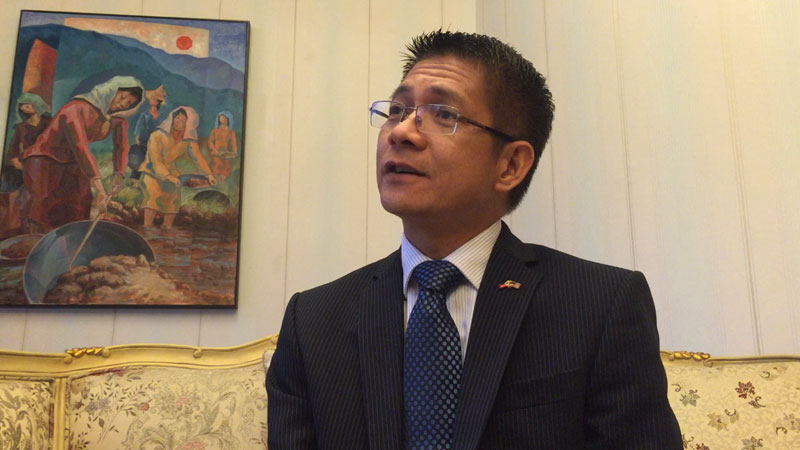KUALA LUMPUR, Malaysia – The Philippine Embassy in this city said it is expecting the autopsy report on the three Filipino teenagers who died during a crackdown on undocumented immigrants in Sabah last month.
“We sent in our request for their reports on the incident and I have been told a copy of the autopsy report is being sent to us,” Ambassador Eduardo Malaya told INQUIRER.net during an interview on Friday.
Last March 21, three Filipino teenagers – Nording Akang, 16; Lahudin Nasir, 17; and Alex Nasir, 18 – died allegedly of suffocation during an operation of the Eastern Sabah Security Command (Esscom) against undocumented individuals at a public market in Lahad Datu, a town in eastern Sabah.
Media reports said the boys died after hiding in a narrow space in the market.
READ: DFA probes deaths of 3 Filipino teens in Sabah
Malaya said they are looking forward to the autopsy report, which would “tell [them] things” that may not have been revealed in the investigation.
Immediately after the incident, the embassy sent a three-person team to Sabah to check the place where it happened and to speak with the relatives of the victims, as well as the local police.
Asked if the team’s findings corroborated that of the Malaysian authorities, Malaya said the case has yet to be resolved and they have yet to “get into the finer details if there are consistencies or inconsistencies.”
He said the embassy’s next actions would be based on the results of the autopsy.
Earlier, the embassy asked the Malaysian government “for full and impartial investigation of the incident.” Malaya said they were especially concerned because the incident involved minors.
He said they also called for humane treatment of Filipinos when Malaysian authorities conduct immigration checks. He said both undocumented and documented individuals have human rights.
According to Malaya, it is estimated that out of the 3.2 million people living in Sabah, 650,000 are Filipinos.
He said the number increased over time because of Filipinos looking for jobs and those escaping the height of conflict in Mindanao during the 1970s and the 1980s. He said there are also those “who are part of the centuries old flow of people between Sabah and Mindanao.” A number of them go back and forth to visit or live with relatives in Sabah.
Lahad Datu was also the place where the men of Sulu Sultan Jamalul Kiram was engaged in a standoff with Malaysian authorities in 2013 to stake their claim on Sabah. Kiram died several months later but his kin vowed to pursue the claim.
The Philippine government has yet to decide on specific actions pertaining to the claim, which the Sulu Sultanate has asked it to take on. Malacañang last month, however, denied that it has offered to downgrade the country’s claim on oil-rich Sabah.
READ: Palace denies downgrading Sabah claim in deal over sea dispute
Malaysia, on the other hand, has long been refusing to acknowledge the claim even as it continues to pay about 5,000 Malaysian ringgit ($1,500) a year to the Sultanate of Sulu.
READ: Malaysia foreign exec: PH has no claim on Sabah
